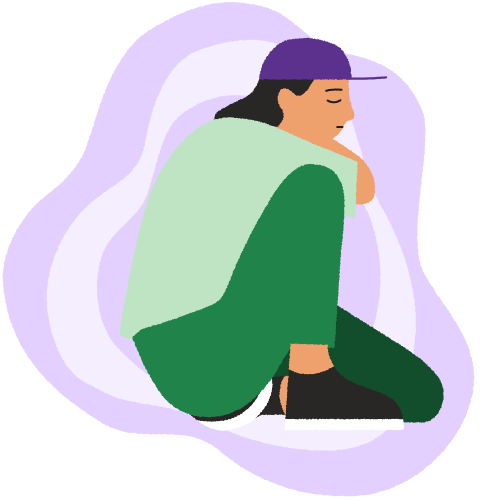🗂️ [[Indices/Sources]]
# Eating Disorders and Exercise
📰 **The intersection of exercise and eating disorders, including signs of excessive exercise and its management during recovery.**
📇 [[Eating Disorders Victoria]]
🏛️ Eating Disorders Victoria
🔗 https://www.eatingdisorders.org.au/eating-disorders-a-z/eating-disorders-and-exercise/

> [!check] Finished Reading
> **Last read**: Wednesday, 22 May 2024
> **My rating**: 10 out of 10
> _An easy and clear read._
>[!abstract]
> `= this.abstract`
🔑 [[eating disorders]], [[obsessive-compulsive disorder (OCD)|OCD]]
👉🏼 Eating Disorders Victoria (2022-02-08). *[[Eating Disorders Victoria - Eating Disorders and Exercise|Eating Disorders and Exercise]]*. Eating Disorders Victoria. [Link](https://www.eatingdisorders.org.au/eating-disorders-a-z/eating-disorders-and-exercise/)
%%
## 📝 Notes
## 📃 Selected Quotes
## 📋 Table of Contents
## 📖 Annotations
%%
#
**Template**: [[Book Search Template]]
**Created**: `$= dv.current().file.ctime`
**Last Modified**: `$= dv.current().file.mtime`
## Readwise Highlights and Notes
### Imported from [[Readwise]] on [[2024-05-22]]
Engaging in enjoyable movement is an important part of maintaining overall wellbeing. However, sometimes engaging in too much exercise can be a sign of more complex issues. ([View Highlight](https://read.readwise.io/read/01hyf23g9f81nzy2bjdp99ep5s))
Exercise can be considered **excessive** when someone shows signs of *any* of the following.
• Prioritising exercise over other important life activities, like work, school, social outings and sleep
• Frequently engaging in exercise at times that may not be considered appropriate and feeling unable to stop
• Engaging in a high volume of exercise daily (from 3+ hours)
• Exercising despite experiencing sickness or injury, and without medical clearance
• Distress if unable to exercise ([[Eating Disorders Victoria - Eating Disorders and Exercise|Eating Disorders Victoria, 8 February 2022]], [View Highlight](https://read.readwise.io/read/01hyf23nb7p3pqdk3770r6jcs6)) ^cbef3f
When someone engages in excessive exercise they may be considered to be experiencing an *exercise addiction* or *exercise dependence*. Many argue this should be classified as a standalone disorder, however the term is not currently recognised in the in the DSM-5 as a behavioural addiction. Rather, the terms ‘primary’ and ‘secondary’ exercise dependence are used to help describe this behavior. When someone is experiencing excessive exercise as a symptom of an eating disorder, it is known as secondary exercise dependence. ([View Highlight](https://read.readwise.io/read/01hyf244b6nrnds6fd4x2yap75))
Excessive exercise is a common symptom across a range of eating disorders. ([View Highlight](https://read.readwise.io/read/01hyf24jtvgy5xhv4820mzh1ms))
**What movement or activities have been fueled by the ED or unhelpful thinking patterns?**
• How has this type of movement made you feel emotionally & psychologically?
• How has it made you feel physically?
• What thoughts might you have when engaging in this type of movement?
• How would you feel (physically & emotionally) after the movement? ([View Highlight](https://read.readwise.io/read/01hyf25d259y2tm2ygzbevckf5))
**What movement or activities have you previously enjoyed or do you currently enjoy?**
• How has this type of movement made you feel emotionally & psychologically?
• How has it made you feel physically?
• What thoughts might you have when engaging in this type of movement?
• How would you feel (physically & emotionally) after the movement? ([View Highlight](https://read.readwise.io/read/01hyf25gn1zva6mn857krcs2c4))
 ([View Highlight](https://read.readwise.io/read/01hyf26ekthcy0te05yav16vzb))
 ([View Highlight](https://read.readwise.io/read/01hyf26emspqjd807fdsj2yrzs))
### New imports from [[Readwise]] on [[2024-05-22]] at 12:09 PM
For those who experience excessive exercise as a symptom of their eating disorder, dependence on this behaviour can be very difficult to stop. Many describe their need to exercise or move their body as a compulsion, similar to [OCD](https://www.beyondblue.org.au/the-facts/anxiety/types-of-anxiety/ocd) behaviours. ([View Highlight](https://read.readwise.io/read/01hyf477ss1kx5nvhr97yywrsb))